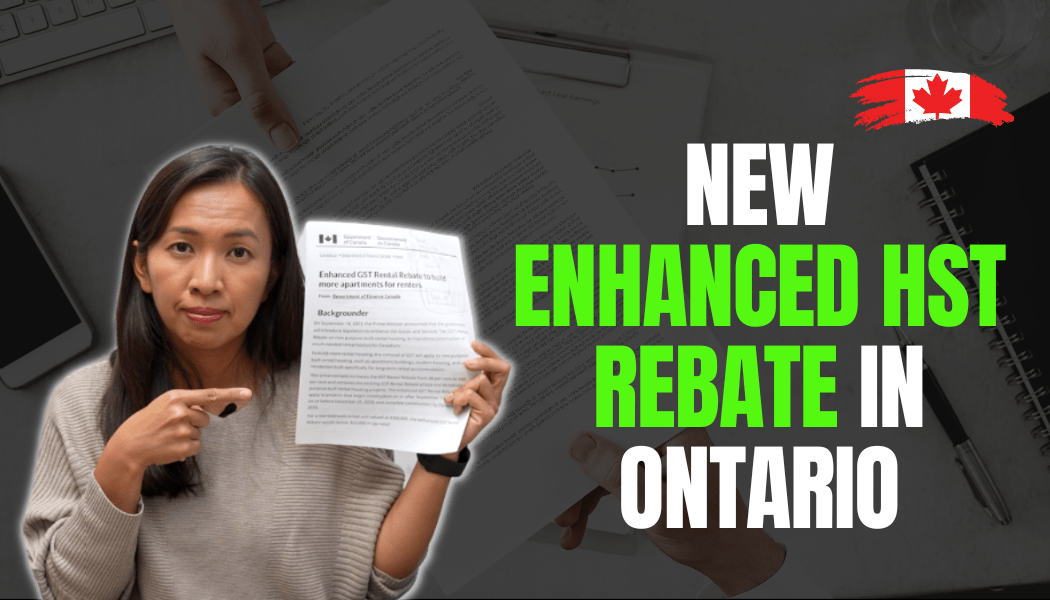This is an exciting week.
Other than the fact that this marks the 3rd last week of tax season this year (woo-hoo!), it is our first time having a booth at Real Estate Investment Network’s Real Estate Strategies Opportunities Solutions (Real Estate SOS) weekend.
For the real estate investors who are going to attend this fantastic weekend, please come out to say hi to us at our booth and sign up to obtain a free giveaway from us. 🙂
This is going to be my third time attending this event. I remember how I was fully blown away by the science and research done behind the presentations and the strategies that they teach.
There are so many tips and tricks you can learn.
Even with 6 years of investing experience, I still learn new things every time I attend these real estate meetings.
It was almost 10 years ago that my mom decided that it was time to move back to Hong Kong.
She has a detached house in Toronto rented out to tenants. I have been the designated property manager that takes care of the property since then.
Before I met Erwin a few years ago, I didn’t know much about how to manage a property.
I advertised strictly on one mainstream Chinese newspaper in their classified ad section with the logic that a few Chinese families would be suitable tenants.
It was vacant for a few months before a middle aged Chinese guy finally committed to rent it.
We were all relieved.
He refused to put his name on the lease. He gave me his wife’s driver license from Montreal.
He also didn’t provide post dated cheques. He liked to pay everything with cash.
He claimed that he had sold his Chinese fast food restaurant in Montreal and moved to Toronto to have a new life.
We were desperate and I didn’t know any better. I didn’t do any background checks, didn’t ask for T4 or employment letter, and of course I also didn’t do any reference check.
When he paid rent on a monthly basis, he insisted in coming out to pay me by cash. We would meet in this parking lot of a brewery factory right by my townhouse complex in Etobicoke at midnight so he could give me a stack of cash. The exchange in the middle of the night just made me feel like we were trading something illegal!
I was always worried about my personal safety as well.
Other than the midnight rent collection in the dimmed parking lot, he wasn’t too bad of a tenant.
One time his girlfriend’s ex-boyfriend came out to break his windshield glass and the police were called.
He missed a couple of months rent at the end before he decided to leave the place without covering any of the water charge. (City of Toronto would not allow tenants to be on the water bill unfortunately.)
Even after he moved out, this ex-boyfriend still came to the house harassing my new tenants thinking he could get a hold of her.
That’s before I met Erwin and got exposed to a wealth of real estate education.
This house is going to be available in the market again in May.
This time I know better. I know how to advertise and market it a lot better. I also learned to screen tenants and how to be a lot more selective. Hopefully, we can get my mom a better tenant.
These education courses are the reasons why we buy houses. They gave us the road map to succeed in real estate investing.
The Income Tax Act allows all expenses that are incurred for the purpose of earning income to be deductible, subject to a list of exceptions.
Based on this criteria, all these education courses and membership fees we incurred would definitely qualify as a deduction against the rental income we receive.
We attend these seminars, we learn and we apply what they teach to buy houses and build a larger portfolio. We earn the rent because of what we learn there.
BUT some CRA auditors do not necessarily agree with this.
They don’t see how these educational expenses would be an expense incurred for the purpose of earning rental income and hence disallow the claim.
Of course, we can always take it to the court when this happens. But for the time and headache involved, it’s just not worth it.
Bottom line – I would still deduct the membership given that it is incurred for the purpose of investing, but always keep in mind there is a risk involved in deducting it.
What if you incurred these courses a while before you purchase any rental property? This just makes it a lot harder to claim the cause-and-effect relationship between your investment and the education you get.
Until next time, happy Canadian Real Estate Investing.
Cherry Chan, CPA, CA
Your Real Estate Accountant






Joel Collard
Do you normally deduct these as other expenses on the T776 or as something else?